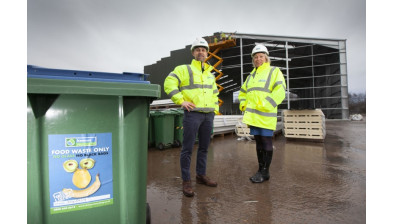Wylie & Bisset: SMEs must boost sustainability ahead of Circular Economy Bill
Chartered accountants Wylie & Bisset is urging small and medium-sized enterprises (SMEs) to consider what practical steps they can take now to make their business practices more environmentally sustainable to give them a competitive advantage ahead of the introduction of the proposed Circular Economy Bill.

Catherine Livingstone, director at Wylie & Bisset
The new Circular Economy Bill, announced in Scotland’s latest Programme for Government to tackle climate change and drive progress towards net-zero carbon emissions by 2045, aims to change attitudes towards waste and tackle the country’s throw-away culture.
Consultations on the new bill will begin shortly, with the aim that the legislation will be brought forward in the coming year.
The new bill follows the recent launch of a £70-million Circular Economy Investment Fund and Service, delivered by Zero Waste Scotland and Scottish Enterprise, to help SMEs develop innovative technologies, business models and infrastructure, offering development support to businesses seeking to redesign their processes and products, and implement resource efficiency measures.
Catherine Livingstone, director at Wylie & Bisset, said: “This forthcoming Bill, together with funding to encourage SMEs to consider sustainability issues, should help incentivise SMEs to build sustainability into their future growth strategies.
“With new legislation on the horizon, it is advisable for SMEs to be proactive, ensure they are ready and that their business processes and practices are fit for purpose with enhanced sustainability ahead of the Bill coming into effect.
“While most SMEs will typically have considered the most cost-efficient method of production rather than the most environmentally-friendly method, this Bill means that more sustainable business processes should be built into their business plans to ensure that they will be fully compliant going forward.”
Livingstone suggests that early adopters in this transition to more sustainable production practices could steal a march on the competition and increase their prospects of commercial success through offering a Unique Selling Point which could appeal to the growing number of environmentally-conscious customers.







